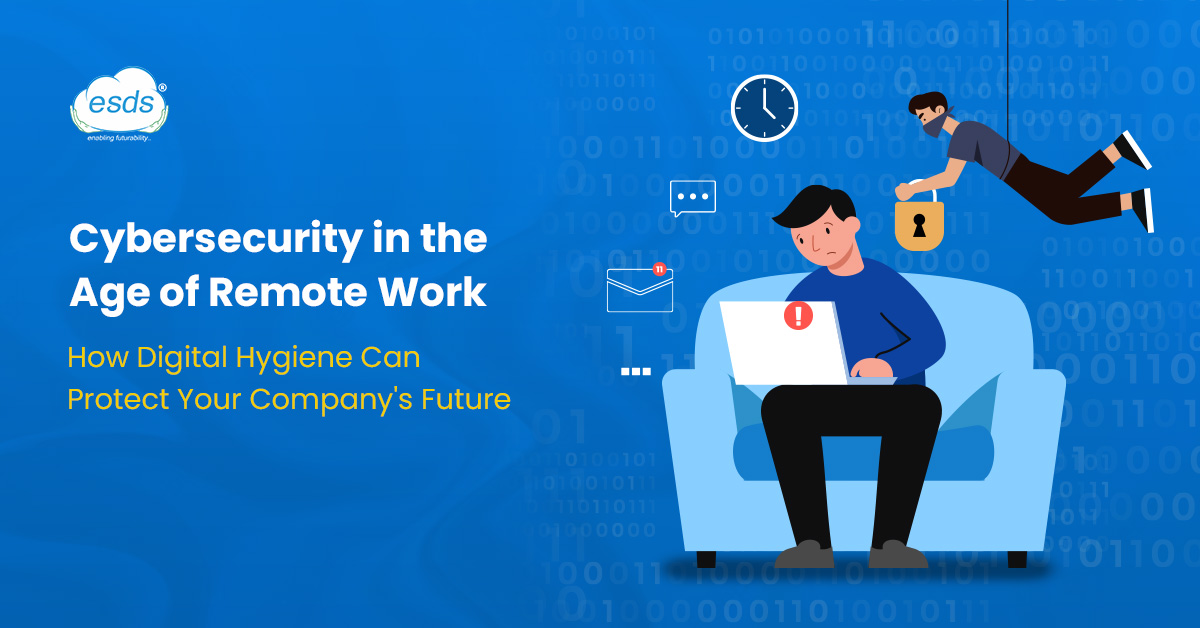Cybersecurity in the Age of Remote Work: How Digital Hygiene Can Protect Your Company’s Future
As the world shifts towards remote work,rn cybersecurity has become a top priority for companies of all sizes. rnWith the rise of digital communication and the increasing reliance on cloud services,rn businesses are now more vulnerable to cyber threats than ever before. rnCybercriminals are constantly evolving their tactics, making it crucial rnfor companies to maintain high digital hygiene standards to protect rntheir valuable assets.
rnrnrn

rnrnrn
In this article, we’ll explore the rnimportance of cybersecurity in the age of remote work and how digital rnhygiene can help safeguard your company’s future. We’ll discuss the top rncyber threats facing modern businesses, the best practices for rnmaintaining digital hygiene, and how to create a cybersecurity strategy rnthat can keep your company safe from potential attacks. So, whether rnyou’re a small business owner or a CEO of a large corporation, read on rnto learn how to protect your company’s digital assets and maintain a rnsecure future.
rnrnrnrn
Understanding the Top Cyber Threats Facing Modern Businesses
rnrnrnrn
In today’s digital age, businesses are rnconstantly under attack from cybercriminals. From phishing scams to rnransomware attacks, cyber threats come in many forms and can cause rnsignificant damage to businesses of all sizes. One of the most common rncyber threats facing modern businesses is phishing. Phishing is a type rnof social engineering attack that uses fraudulent emails or messages to rntrick individuals into giving away sensitive information. These emails rnoften appear to be from a legitimate source, such as a bank or a companyrn that the recipient does business with. Once the victim provides their rnlogin credentials or other sensitive information, the attacker can use rnthat information to gain access to their accounts or steal their rnidentity.
rnrnrnrn
Another common cyber threat facing rnmodern businesses is ransomware. Ransomware is a type of malware that rnencrypts a victim’s files and demands payment in exchange for the rndecryption key. Ransomware attacks can be devastating for businesses, asrn they can lead to the loss of valuable data and significant downtime. rnOther common cyber threats facing modern businesses include malware, rnDDoS attacks, and insider threats.
rnrnrnrn
What is Digital Hygiene?
rnrnrnrn
Digital hygiene refers to the practices rnand habits individuals adopt to maintain their online health and rnwell-being. In today’s hyper-connected world, we spend a significant rnamount of our time on digital platforms. As we navigate the virtual rnworld, we expose ourselves to various risks like cyberbullying, identityrn theft, phishing attacks, and more. Digital hygiene aims to protect us rnfrom such threats by promoting responsible and safe online behavior. So,rn what is digital hygiene, and why is it essential? To put it simply, rndigital hygiene involves everything from securing your passwords to rnbeing mindful of the content you consume online. It is similar to rnpersonal hygiene, where you take measures to keep yourself clean and rnhealthy. In the same way, digital hygiene involves taking steps to keep rnyour online identity and data secure.
rnrnrnrn
Importance of Digital Hygiene in Cybersecurity
rnrnrnrn
Maintaining good digital hygiene is rncrucial for protecting your company’s assets from cyber threats. Digitalrn hygiene refers to the practices and routines that individuals and rnorganizations use to keep their digital devices and data safe from cyberrn threats. Good digital hygiene can help prevent cyber-attacks, reduce rnthe risk of data breaches, and protect your company’s reputation. Some rnof the best practices for maintaining good digital hygiene include usingrn strong passwords, keeping software up to date, and regularly backing uprn data.
rnrnrnrn
Using strong passwords is one of the rnmost important aspects of digital hygiene. Passwords should be at least rneight characters long and should include a combination of uppercase and rnlowercase letters, numbers, and symbols. Passwords should also be rnchanged regularly, and password reuse should be avoided. Keeping rnsoftware up to date is also crucial for maintaining good digital rnhygiene. Software updates often include security patches that can help rnprotect against known vulnerabilities.

